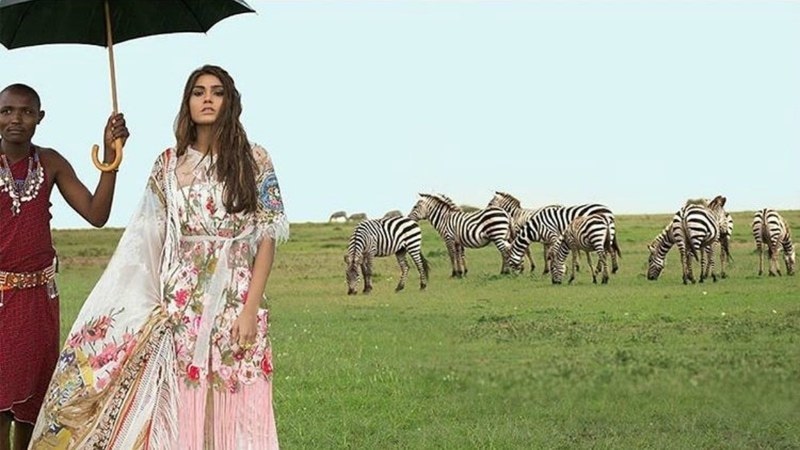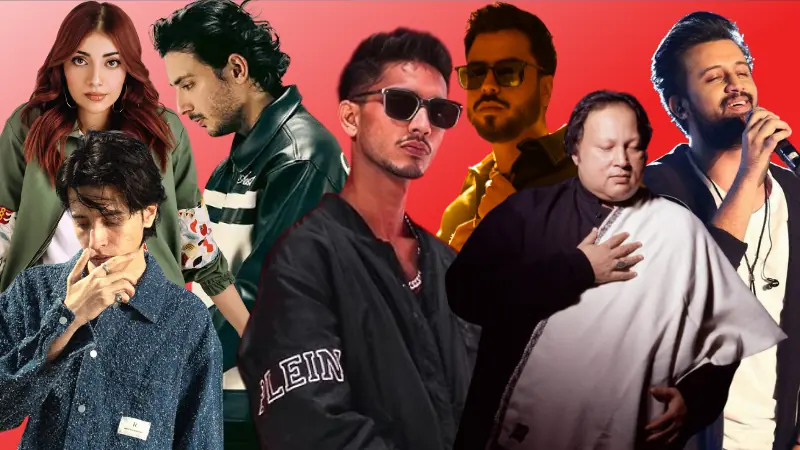How NOT to be offensive as you shoot your next fashion campaign
It's crazy to us that in 2020, we have to be explaining why things like racism and sexism are offensive but here we are.
After Sana Safinaz sparked online outrage for its troubling representation of the Masai people and we've had one too many cases of people thinking blackface is okay, we thought we need to draft up a handy list for some of you peeps!
So to all the designers, creative teams and photographers (and models/makeup artists who go along with this!), here are a list of dos and don'ts for when you're shooting your next campaign.
Don't: Position $4000 luggage against workers who earn a tiny, tiny fraction of that amount

We all know luxury brands are supposed to be 'aspirational.' But it's worth examining whose aspirations you're seeking to stoke.
If your target audience is NOT a porter at the train station, is it necessary to include him in your photograph? If he can't afford these luxury items is it really fair to flaunt them in front of him? What's the point, we ask. Just don't.
Do: Snap a solo shot of your (paid) model sitting on top of whatever luggage pleases you.

There we go. Not that difficult.
Don't: Glamourise child slavery or bonded labour

Please understand that conceptualising a photo shoot is hard. Pulling off 'irony' or 'satire' in the same of social commentary within a photo shoot is even harder. If you're not careful, the picture you thought would 'raise awareness' about a social issue could end up looking like an advertisement for slavery.
This photoshoot by Aamna Aqueel is all sorts of wrong, and it shouldn't have happened. If you don't have access to a truly revolutionary creative team, stick to shooting your clothes on the beach or similar.
Do: Make sure the children featured in your campaign are happy and well-cared for

There's a lot of controversy around child models anyway. But if you'd like to feature children in your aspirational ad campaign, do make sure they're happy and healthy. Like these little tots here.
Don't: Glamourise abusive behaviour in the name of raising awareness

Again, you might be trying to highlight a social ill -- but honestly, you didn't pull it off.
Context matters, and a single image doesn't provide enough of it to reveal your true creative intention. All we see in this photograph above is a man getting rough with a woman as if it's totally normal. Nuh uh.
Do: Feature positive male-female interaction

What do you know, men and women can pose together without looking creepy/intense.
Don't: Use people as props

Like... what do they gain from featuring a person from the Masai tribe holding an umbrella over their model? It reeks of our colonial hangover that never ends; we go into their country as guests and then dehumanise them. Must take a picture to commemorate this moment!
Come on guys, we can hold our own umbrellas.

Do: Interact and engage with local communities and cultures in a meaningful way

That's more like it. Cross-cultural pollination is allowed and this is how you can do it without using people as merely background candy.
Don't: Make creative decisions in a vacuum

Alee Hassan conceptualised, styled and photographed the shoot featuring Anam Malik above. Maybe if he had stepped out of his echo chamber and taken feedback from other people, someone would've said, "Hey man, maybe this isn't the best idea because you know, blackface is never okay."
You don't always know best; be open to constructive criticism, look at the bigger picture and before putting your work out into the world, do your homework!
Do: Stay abreast of trending conversations about representation, diversity and justice

Aaand here's Generation showing them all how it's done!
The brand has always stayed ahead of the curve, being one of the most inclusive clothing retailers we have in the country. Here they show you that you can create a stunning, powerful campaign all in your own country without discriminating against other races.
This article was originally published on 16 March, 2018 and has been updated accordingly.












Comments